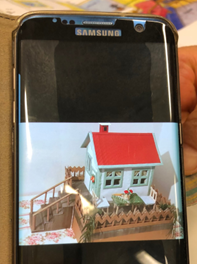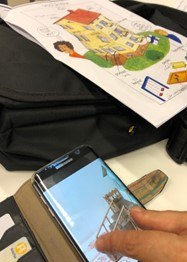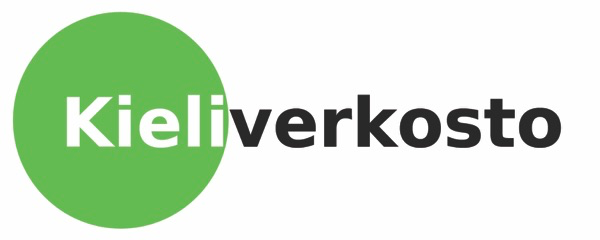Making knowledges count in assessment
Julkaistu: 8. marraskuuta 2023 | Kirjoittanut: Johanna Ennser-Kananen
The problem with “knowledge”
When we use assessment tools in the classroom, we might think that we are gathering evidence for what students know. Everyone who has received unexpected answers from students on a test, or not received expected ones, knows it is not that simple. As much as we sharpen our assessment tools, there may still be a big part that we are missing if we understand knowledge as something that can unproblematically be found, produced, developed, or measured.
Let’s therefore back up a bit and consider “knowledge” as something that is not as neutral, universal, or innocent as it may seem. Since the existence of educational institutions, knowledges have been evaluated and negotiated. At some point, every school or university, every teacher, education specialist, principal, and curriculum writer, is confronted with questions like: “What knowledges do we - and don’t we - value, foreground, and develop? What constitutes valuable or accepted knowledge in our context? Can these decisions about the value and acceptance of knowledges be (re)negotiated, and if so, by whom and how?”
If we go back in history (where I believe many answers lie), the time of colonialism was likely one of the greatest forces that affected how the current hierarchy of knowledges (i.e., which/whose knowledges are “on top” or most valuable, and which ones are less accepted, and thus further down or on the bottom). Indigenous peoples, for instance, were generally considered to be “knowledgeless”, their knowledges viewed as “fairy tales” or “beliefs” that did not meet the standards of so-called “western” or “enlightened” science (Quijano, 2007). Scholars like Sabelo Ndlovu-Gatsheni (2018) have dedicated their work to transforming this hierarchical knowledge landscape and invite us all to do our part in contributing to a move towards what he calls “epistemic freedom”. He defines this as follows:
Epistemic freedom is about democratising ‘knowledge’ from its current rendition in the singular into its plural known as ‘knowledges’. It is also ranged against overrepresentation of Eurocentric thought in knowledge, social theory, and education. (2018, p. 18)
One might argue that this was a long time ago, and how does this even concern Finland? As Quijano (2007) explained, colonial practices and ways of thinking continue to this day, as so-called “coloniality”. In the Finnish context, Vuorela (2016) has coined the term “colonial complicity” to highlight Finnish past and present participation in colonial processes and thinking. Such participation included plans for colonizing present-day Namibia, exploitative and exoticizing studies of early Finnish anthropologists serving the Russian empire, and the ongoing oppression of Roma and Sámi people, to name a few (Vuorela, 2016). Such colonial complicity is typically so ingrained in “western” societies and educational systems that they have become normalized and almost unrecognizable to those who have never known anything else.
In my current work, I examine which knowledges exist and become legitimate in a school, and which ones don’t. As if studying knowledges was not tricky enough (What is knowledge even? Would I recognize it, especially given that I am born, raised, an educated with a lot of epistemic privilege? An important topic (for another article). I work closely with learners who have experienced interruptions of their formal education, for example due to war, violence, or discrimination. On top of this, they belong to groups that are commonly stigmatized or attacked in Finland and many other societies, for instance due to what people perceive to be their racial, linguistic, socioeconomic, national, or religious identities (e.g., Ennser-Kananen, 2021). In other words, they are not typically seen as legitimate knowers, and their knowledges are commonly overlooked or dismissed. In this sense, migrant/refugee education is always at risk of repeating the same patterns that colonial processes have created and coloniality has maintained. In my 4th year of my current study, I have seen a lot of knowledges (and probably missed even more), some expected and many completely unexpected. Knowledges that often go unnoticed by the curriculum are, for instance, knowledges about child rearing or caring for ageing relatives (“care knowledge”), about living on a budget (“thrift knowledge”), about building, decorating, fixing, moving (“homemaking knowledge”), about nature and activities in nature like hiking, fishing, and observing (“environmental knowledge”), and processing incidents of racism, violence, discrimination (“knowledges of pain”). Other scholars before me have done the important work of highlighting the knowledges of racialized and socioeconomically disadvantaged communities, for example a large body of research on “funds of knowledge” (e.g., González, et al., 2006,) or Yosso’s (2006) research on community cultural wealth. These scholars model how to recognize undervalued knowledges and use them in the classroom. I argue that we need such knowledge-aware instruction to counter a deficit approach that, in Yosso’s words, “takes the position that minority students and families are at fault for poor academic performance” (Yosso, 2006, p. 75).
What may unrecognized knowledges look like when they surface? As there is no single answer to this question, I will instead offer an example. I met one student from Afghanistan, let’s call her Hanadi (a pseudonym), who created art in her free time. For example, she built a house out of cardboard, fabric, and other recycled and reused materials (picture 1) and is planning to turn it into a stop motion movie. In an interview, she told me that, in order to build her house, she learned house-related words from worksheets she got at school (picture 2), observed Finnish houses on her walks, and collected materials from several stores in her town.


What still strikes me about discovering Hanadi’s artistic side, was that it was not (or barely) visible at school. What if Hanadi had a chance to work on her art in her lessons? Or rather, what if lessons were built around her interests? What if curricula not only allowed but encouraged such instruction, also in adult basic education contexts? Arts and crafts, languages, social studies, math – I can’t think of a subject area that could not be linked to a project like this.
Can we cross epistemic lines?
At the same school I met Hanadi, I held a workshop series for teachers with my colleagues Saara Jäntti and Sanna Riuttanen. We hoped to get some insight into how teachers understand the boundaries that separate “valuable knowledges” from “less valuable” knowledges or even “knowledgelessness”. Such lines are drawn (often implicitly) by textbooks, curricula, or by beliefs and discourses that surround teachers and students at school in other contexts. One day, a teacher, let’s call her Mirja, shared an incident, where a student, originally from Iraq, had written a math problem on the board. The teacher told us that she could not decipher the writing on the board but saw that the result was correct. She validated the student’s knowledges, even though she did not (fully) understand them (not an easy thing to do!) and told the student: “If you continue to further education, then you have to be able to use the Finnish way and show that you can do this” (audio recording, December 2022). Importantly, in the ensuing discussion, teachers, including Mirja, deconstructed the idea of a “Finnish way” for doing math. Together, they used their parental and school knowledges to show that “ways of doing math” have changed across time and place. For example, one language teacher commented that “When I'm doing math homework with the kids, I had to do division, very simple … at that point my brain goes into a knot” (audio recording, December 2022), explaining how their way of doing math is different from their children’s. (A paper with a closer analysis of this case is in progress, stay tuned.) What surfaced here was a collective understanding that not only is there not “one way” of doing math, there is also not “a Finnish way” because the way math is done and taught has changed across time and place, and will continue to change also in the future. As researchers, we were impressed with how the teachers in our workshop questioned overly simplistic and culturally biased understandings of math knowledge and reflected on what knowledge diversity and equity could mean in their practice. Knowing that there is not one right way of doing math of course also affects assessment. If there is not one right way of doing math (or anything), there also can’t be one right way of assessing it (or anything).
Towards knowledge-fair assessment: ethicality, antiracism, and translanguaging
Rethinking assessment has been on the mind of many critical scholars, here I offer only a few examples as potential starting points. Although they relate to large-scale assessments, I believe we can learn from them. Bear with me.
Given that racialized communities tend to be among those whose knowledges are dismissed or forgotten, Randall et al. (2022) have proposed assessment with an antiracist focus, called justice-oriented antiracist validity framework (JAV). They explain that …
an antiracist assessment approach … [requires] an explicit confrontation of racism in our assessment practices and works to disrupt these systems of oppression through assessment practices specifically designed to sustain, not eradicate, students’ cultures, languages, and ways of knowing/being (p. 172).
Using a large-scale and nationally used standardized test (the Massachusetts Comprehensive Assessment System, or MCAS) as an example, the authors show how assessment could be revised by applying a racially sensitive lens. Specifically, they call for reflection and reform initiated by the critical questions they pose, which concern different aspects of the test (e.g., content, consequences, response processes). Examples of these questions include: “Whose values, perspectives, ways of knowing, and experiences does the construct reflect, normalize, or marginalize?”, “Are there test items that actively disrupt negative stereotypes about minoritized populations?”, “What systems would have to be in place for a student to be successful on this assessment?”, “What historical logics of testing and racism are students bringing to the testing situation?”, and “Do the items allow for multiple ways of thinking and knowing?” (Randall et al., 2022, p. 175).
In the area of writing, Slomp (2016) designed a framework for ethical assessment, which East and Slomp (2023) expanded on by recommending translanguaging as a major area in need of consideration. By translanguaging, scholars and educators usually mean the use of communicative resources that blurs the boundaries between languages and other linguistic categories (e.g., accents, dialects, modes …), which is a common and natural practice of multilingual language users. In other words, rather than working with fixed categories like “English” and “Arabic”, a translanguaging approach understands all communication as coming from one resource pool, where all boundaries are blurry, artificial, and problematic.
This idea poses a problem to writing assessment, which is largely built on the assumption that there are clear boundaries between languages (Otheguy et al., 2015) and most writing assessments do not allow for translanguaging. This excludes a large amount of knowledges, specifically those of multilingual language users. Translanguaging scholars have acknowledged that people who are perceived to “lack language” also tend to be perceived to “lack knowledge” and vice versa. (The word “perceived” is important here, because noone actually lacks knowledge or language.) For example, researchers have shown that racialized multilinguals tend to be positioned as having no language, no “appropriate” language, no “academic” language, or no “correct” language, etc. (e.g., Flores & Rosa, 2022; Mustonen, 2021). Instead of such deficit thinking, García et al. (2021) invite us researchers and educators to pose critical questions to our own concepts and frameworks, for example: What is “academic” language? What is “appropriateness”? What is “correct”? What is “language”? What is the “norm”? And who decides? I believe that we could design (more) knowledge-just assessment with such questions guiding us.
What does this mean in practice?
What does this have to do with us in Finland? Hanadi’s main obstacles were not standardized high-stakes tests. However, inspired by the above-mentioned questions, we might consider how her learning and doing could be integrated into her school life more fully, and how it could be acknowledged through assessment. This is not as easy as adding some reflection time to teachers’ workloads. In fact, many teacher educators (including myself) warn against approaches that simply delegate pedagogical reform to teachers by criticizing their practices and offering them a few quick fixes as so-called “best practices”. Instead, if we are serious about challenging colonial complicity (see above) in education, we need an all-hands-on-deck approach that develops and fosters knowledge-fair teaching and learning on every level of the educational system. We need to build curriculum and pedagogy around unrecognized knowledges. We need to provide teachers with the time, skills, and support to recognize a wide variety of knowledges and tap them for teaching. We need teacher educators who, driven by epistemic justice goals, center their classes and curricula around developing teachers’ ethnographic skills, sense of justice, relationship building, and knowledges about power and oppression in educational contexts. That’s a major undertaking. The good news is, the work has already begun. Join us!
Johanna Ennser-Kananen is an Associate Professor of English at the Department of Language and Communication Studies
at the University of Jyväskylä.
References
East, M., & Slomp, D. (2023). The ethical turn in writing assessment: How far have we come, and where do we still need to go? Language Teaching, 1–12.
Ennser-Kananen, J. (2021). ‘My skin is hard’-adult learners’ resistance to racialization and racism. Nordic Journal of Studies in Educational Policy, 7(3), 179–189.
Flores, N., & Rosa, J. (2015). Undoing appropriateness: Raciolinguistic ideologies and language diversity in education. Harvard Educational Review, 85(2), 149–171.
Flores, N., & Rosa, J. (2022). Undoing competence: Coloniality, homogeneity, and the overrepresentation of whiteness in applied linguistics. Language Learning. https://doi.org/10.1111/lang.12528
González, N., Moll, L. C., & Amanti, C. (Eds.). (2006). Funds of knowledge: Theorizing practices in households, communities, and classrooms. Routledge.
García, O., Flores, N., Seltzer, K., Wei, L., Otheguy, R., & Rosa, J. (2021). Rejecting abyssal thinking in the language and education of racialized bilinguals: A manifesto. Critical Inquiry in Language Studies, 18(3), 203–228.
Mustonen, S. (2021). ‘I’ll always have black hair’–challenging raciolinguistic ideologies in Finnish schools. Nordic Journal of Studies in Educational Policy, 7(3), 159–168.
Ndlovu-Gatsheni, S. (2018). The dynamics of epistemological decolonisation in the 21st century: Towards epistemic freedom. The Strategic Review for Southern Africa, 40(1), 16–45.
Otheguy, R., García, O., & Reid, W. (2015). Clarifying translanguaging and deconstructing named languages: A perspective from linguistics. Applied Linguistics Review, 6(3), 281–307.
Quijano, A. (2007). Coloniality and modernity/rationality. Cultural studies, 21(2-3), 168–178.
Randall, J., Slomp, D., Poe, M., & Oliveri, M. E. (2022). Disrupting white supremacy in assessment: Toward a justice-oriented, antiracist validity framework. Educational Assessment, 27(2), 170–178.
Slomp, D. (2016). An Integrated Design and Appraisal Framework for Ethical Writing Assessment. Journal of Writing Assessment, 9(1). Retrieved from http://journalofwritingassessment.org/article.php?article=91
Vuorela, U. (2016). Colonial Complicity: The ‘Postcolonial' in a Nordic context. In. S. Keskinen, S. Tuori, S. Irni, & D. Mulinari, D. (Eds.). (2016). Complying with colonialism: Gender, race and ethnicity in the Nordic region (pp. 19–33). Routledge.
Yosso, T. J. (2006). Whose culture has capital? A critical race theory discussion of community cultural wealth. Race ethnicity and education, 8(1), 69–91.
